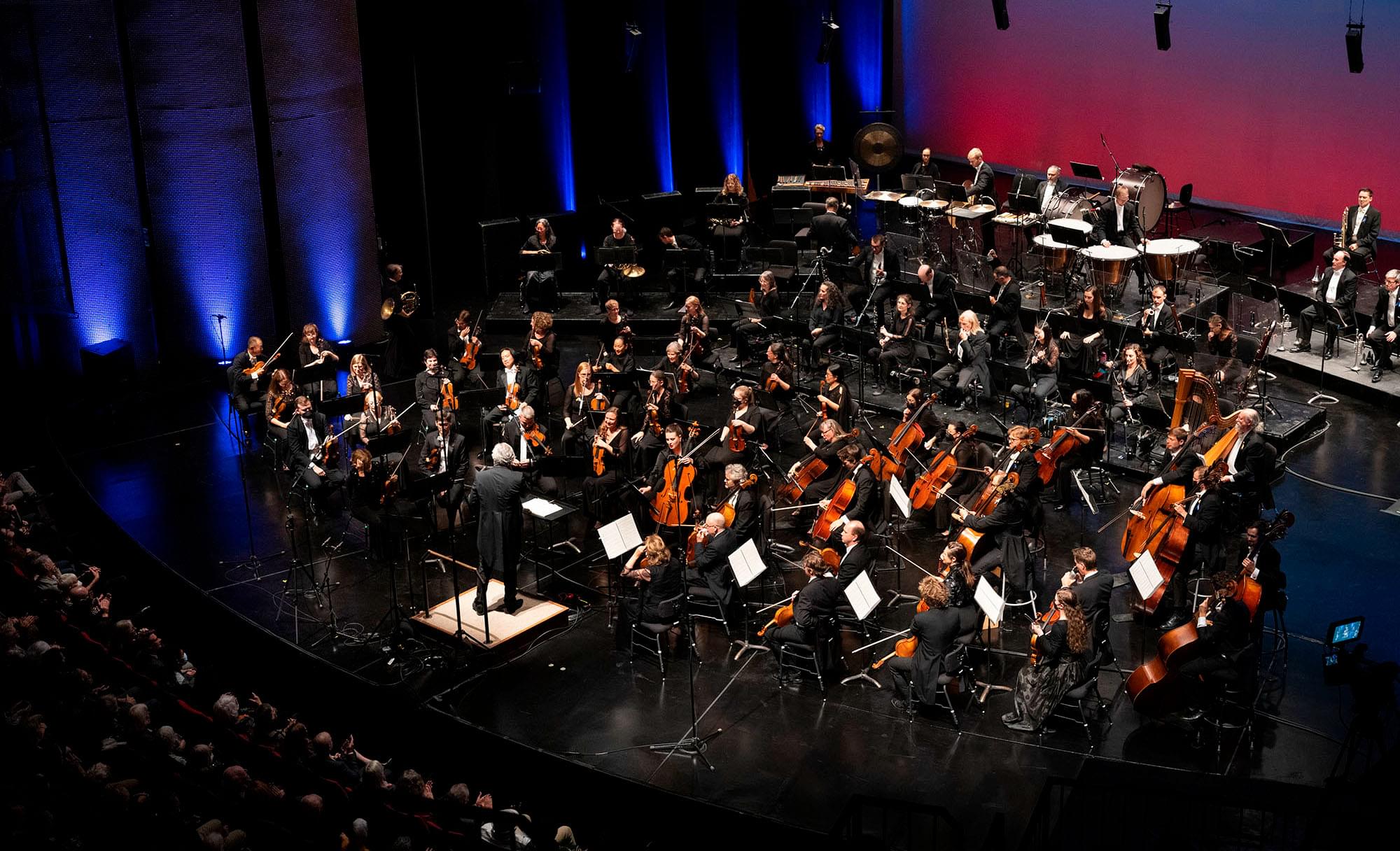
Ravel, Rachmaninoff & Rayskin: Three Must-See Moments
- News
By Avi Bhatt

A stunning feat of artistry, a grand comeback symphony, and a concerto by a rockstar
The WSO’s 2025/26 classical concerts are now on sale, and here are three performances you won’t want to miss!
1. Maurice Ravel’s Piano Concerto for Left Hand
After losing his right hand shortly after the start of World War I, things looked bleak for Austrian pianist Paul Wittgenstein. He had launched his concert career just a year before being called up to serve in the Austrian reserves. A gunshot wound to the elbow during combat on the Russian front led to the amputation of most of his right hand. But Wittgenstein survived the war and returned to music with fierce determination, developing an extraordinary technique for the left hand alone.

Piano repertoire for one-handed works was quite limited but belonging to a remarkable Viennese family meant that Wittgenstein was able to request commissions specifically suited for his unique condition from many of the leading composers. Those who responded to his request included Richard Strauss, Prokofiev, Benjamin Britten, and most famously Ravel.
The French composer accepted the commission in March 1929, and completed the work by the fall of the following year. The concerto is described as “a dark, powerful work with tragic overtones,” displaying “a great deal of resourcefulness and originality on Ravel’s part” (LA Phil). Ravel once noted, “In a work of this kind, it is essential to give the impression of a texture no thinner than that of a part written for both hands. For the same reason, I resorted to a style that is much nearer to that of the more solemn kind of traditional concerto.” In other words, he wanted the listener to forget what was missing.
WSO audiences can witness Canadian pianist Stewart Goodyear perform this stunning feat of artistry on Thursday, November 13, at French Masters, part of the Thursday Classics series.

2. Rachmaninoff’s Comeback Symphony
When Sergei Rachmaninoff premiered his Symphony No. 1 in D minor in St. Petersburg on March 28, 1897, it was an immediate disaster. A poor performance due to under-rehearsals and a possibly intoxicated Alexander Glazunov conducting from the podium meant that the 23-year-old composer’s confidence was completely shattered, leading to a subsequent psychological collapse.

For three years, Rachmaninoff composed no music. It took him a decade to finally begin work on his second symphony but only three months to complete the first draft. He finished the work in the fall of 1907 and debuted the symphony the following January to rousing success. Critics praised it for its “soaring tunes, scale wise bass and harmonies full of character and surprise,” says Simeon Rusnak, WSO Director of Classical Programming. Today, the piece is regarded amongst the composer’s most popular compositions. Everyone loves a good comeback story!
Concert-goers have two opportunities to experience Rachmaninoff’s redeeming romantic symphony at Bernstein & Rachmaninoff: as part of the Saturday Classics on February 14, at 7:30 pm, or at the Sunday Classics on February 15, at 2:00 pm.
3. Ilia Rayskin’s WSO debut
“You might get a raised eyebrow, you know, promoting your own son,” Music Director Daniel Raiskin told The Free Press in an interview with Conrad Sweatman earlier this year. But “Raiskin participates in a time-honoured tradition of classical musicians performing alongside their children — from cellist Yo-Yo Ma and his daughter Emily Ma back to J.S. Bach and his many prodigious sons,” Sweatman wrote of the occasion.
The maestro’s son, New York-based Ilia Rayskin, is amongst the most promising, upcoming drummers and composers in the jazz scene. And he has an incredibly challenging task at hand next season: a WSO debut with his father at the podium, performing a work composed by The Police’s Stewart Copeland, ranked the 10th best drummer of all time by Rolling Stone.

The piece, Tyrant’s Rush: Concerto for Trapset and Orchestra, is described by Polyarts as a “celebration of the un-tapped virtuosity of the symphonic percussion section” and “a demonstration that the distance between rock drummer and timpani virtuoso is not as far as one may think.” Copeland is in town that weekend for a one-night only performance with the WSO, performing many of The Police’s classics reimagined for orchestra, including Roxanne and Message in a Bottle.
Raiskin says he is “proud to share the stage” with Ilia, and is looking forward to Copeland’s performance of Police songs, many of which he “grew up with and still listens to with great pleasure.”
Stewart Copeland & Beethoven takes place on Thursday, March 26, at 7:00 pm, part of the Thursday Classics series.

![20640-WSO-2025-26-Season-Creative-Cello-Festival-Grand-Finale-[960x540]-Mar2025-FNL](https://images.wso.ca/uploads/2025/03/20640-WSO-2025-26-Season-Creative-Cello-Festival-Grand-Finale-960x540-Mar2025-FNL.jpg?resize=480%2C300&gravity)









